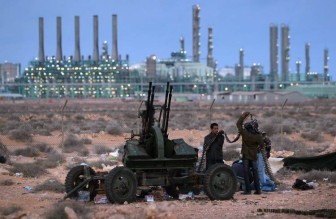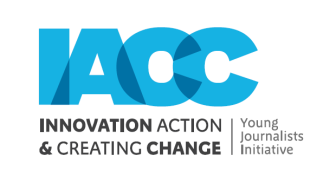 Journalists willing to take on their governments and investigate oil production must be fearless by necessity.
Journalists willing to take on their governments and investigate oil production must be fearless by necessity.
But a session at the Global Investigative Journalist Conference (GIJC2013) this past Sunday in Rio de Janeiro, Brazil, highlighted the complexities facing muckrakers trying to extract meaningful data from national governments and titans of industry, despite requirements for transparency.
During the session, panelists discussed the glut of data that is simultaneously making investigations into the global extractive industries around the world easier, yet more difficult.
“S![]() lowly, governments are releasing more data about these industries, the problem is that there is so much, it can be overwhelming to work with,” said Maren Sabo of Magazine X in Norway.
lowly, governments are releasing more data about these industries, the problem is that there is so much, it can be overwhelming to work with,” said Maren Sabo of Magazine X in Norway.
Sabo explained that the Angolan government has been pressured to report its oil revenue month-by-month, block-by-block to promote transparency and while that may be a boon for transparency, it’s a lot of information for a single journalist to work with.
![]() Still, it’s the sort of transparency that would be a luxury for Eric Mwamba, a Congolese investigative reporter and panelist who says that while the Democratic Republic of Congo is richly endowed with natural resources, the government reports that only 2 percent of GDP comes from those sources.
Still, it’s the sort of transparency that would be a luxury for Eric Mwamba, a Congolese investigative reporter and panelist who says that while the Democratic Republic of Congo is richly endowed with natural resources, the government reports that only 2 percent of GDP comes from those sources.
From there, the discussion turned to the asymmetry of information and power between journalists and oil conglomerates.
![]() Khadija Sharife of Forum for African Investigative Reporters (FAIR) warned against relying too much on the information provided by the Extractives Industries Transparency Initiatives (EITI) in various countries. EITI reports only what companies do pay to government — not what they should pay. She noted that corporate tax avoidance through techniques such as mispricing were the primary source of revenue leakage.
Khadija Sharife of Forum for African Investigative Reporters (FAIR) warned against relying too much on the information provided by the Extractives Industries Transparency Initiatives (EITI) in various countries. EITI reports only what companies do pay to government — not what they should pay. She noted that corporate tax avoidance through techniques such as mispricing were the primary source of revenue leakage.
Yet, the panelists insisted that while are major difficulties in covering these stories, the end result can have great impact.
Bolanle Omisore reports on this event as part of the IACC Young Journalists Initiative, a network reporting on corruption around the globe.

